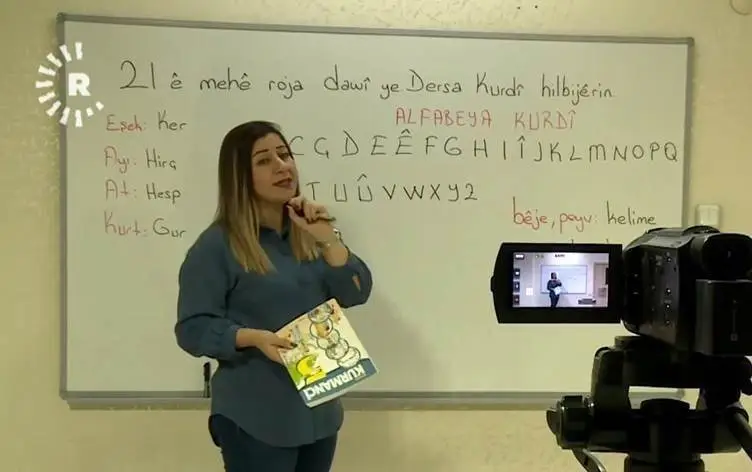The Turkish Ministry of Education’s decision to allocate only 10 positions for Kurdish language teachers out of 20,000 new teaching positions has sparked significant backlash, the Stockholm Center for Freedom reported.
Last year the ministry appointed 50 Kurdish teachers under a program titled “Living Languages and Dialects.” This year, the number was reduced to 10, comprising six teachers of the Kurmanci dialect and four for Zazaki.
The reduction has drawn sharp criticism from politicians and civil society organizations, who argue that it undermines the right of Kurds to education in their mother tongue.
Gülderen Varlı, a member of parliament from the Democracy and Equality Party (DEM Party) in Van, said on social media that Kurdish is only remembered during election periods.
“They are trying to prevent education in the mother tongue,” she said, adding that Kurds pay taxes and have the right to receive education in their native language.
Akılları sıra "Yaşayan diller ve lehçeler"adı altında 10 Kürtçe (Kurmancî-Zazakî) öğretmen atayarak Kürtlere azınlık muamelesi yaparak anadilde eğitime engel olmaya çalışıyorlar. Bu ülkede Kürtler vergi veriyorsa, kendi anadilinde eğitim alma hakkına da sahiptir. Kürtçe’yi ve… pic.twitter.com/bH0lZEVyfx
— Gülderen VARLİ (@gulderenvarli) May 7, 2024
Kurdish was introduced as an elective course in September 2012 as part of Turkey’s European Union accession process.
However, critics argue that although the government claims to allocate teaching positions based on need, systemic barriers prevent students from choosing Kurdish as an elective. Many schools do not provide forms for selecting courses, citing a lack of teachers and redirecting students to other subjects.
Ömer Faruk Gergerlioğlu, another DEM Party member from Kocaeli, joined the criticism, pointing out the ineffectiveness of the elective course system. “Only 10 Kurdish teachers will be appointed. The number of Kurdish teachers appointed in 10 years is 189.”
Sadece 10 Kürtçe öğretmen kontenjanı atanacakmış! 10 yılda atanan Kürtçe öğretmeni sayısı 189!
Seçmeli ders işi yürümüyor! Yürütülmek istenmiyor! Talep çok fazla! https://t.co/sawwyntC2b
— Ömer Faruk Gergerlioğlu (@gergerliogluof) May 8, 2024
Veysel Aydeniz, founder of the Diyarbakır Education Monitoring and Reform Initiative, highlighted the inconsistency in the allocation of Kurdish teaching positions. While last year 50 additional teachers were provided for 24,000 students opting for the course, this year only 10 positions are allocated for 34,000 students.
In response to these issues, the DEM Party brought the matter to parliament.
Questions raised by Diyarbakır MP Serhat Eren to Education Minister Yusuf Tekin include the rationale behind providing only 10 positions for Kurdish language teaching among 20,000 appointments and the overall insufficiency of teachers for Kurdish elective courses.
Until the EU reforms in the early 2000s, the Kurdish language faced heavy restrictions in Turkey due to the country’s refusal to acknowledge the Kurds as a minority group.
Unlike the Greeks, Armenians and Jews, who enjoy certain cultural rights and autonomy under the Treaty of Lausanne, which laid the foundations of the Turkish Republic, the Kurds are still denied official recognition despite being the country’s largest minority.
In recent years, particularly since President Recep Tayyip Erdoğan’s political alliance with the far-right nationalists and a failed coup attempt in July 2016 that triggered a widespread crackdown on the Kurdish political movement, there have been significant rollbacks in terms of the liberties granted for the use of the Kurdish language including the shutdown of dozens of Kurdish-language media outlets.

